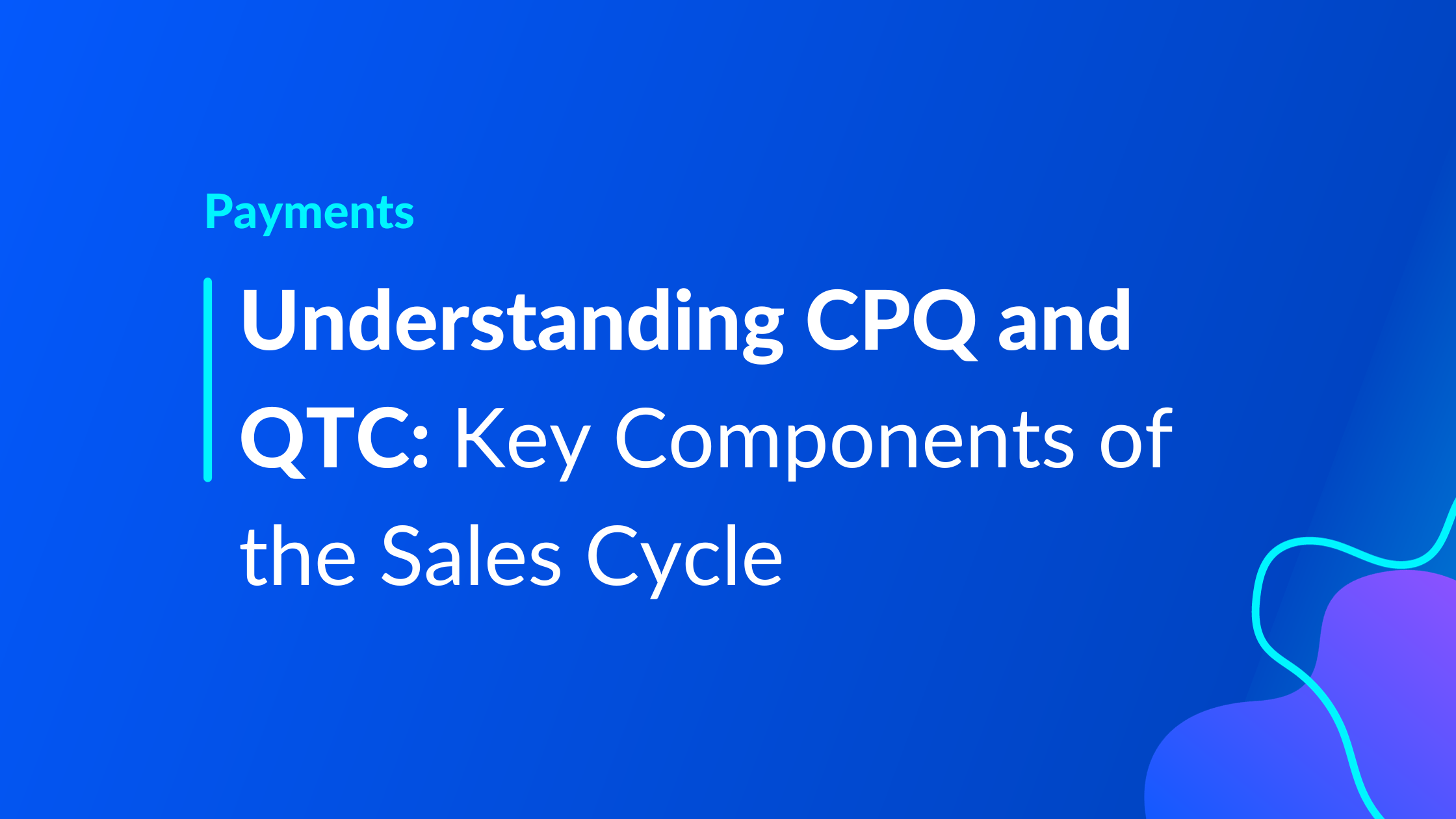In the fast-paced world of business, optimizing your sales process is imperative for achieving success. Two key components that have rapidly gained popularity in recent years are CPQ (Configure, Price, Quote) and QTC (Quote to Cash), which we delved into in our previous post -
While there are, in fact, similarities between CPQ and QTC, they are not interchangeable; each system holds a fundamental role in executing the overall sales process. In this blog, we'll explore the key differences between these two fundamental tools and how each can benefit your business.
Back to Basics: What Is CPQ and Quote to Cash?
CPQ refers to a tool that helps businesses streamline the sales process. It is software that allows sales reps to configure products, price them accordingly, and generate quotes. CPQ simplifies the quoting process by automating manual tasks that consume valuable time in traditional sales processes -
On the other hand, Quote to Cash (QTC) is a broader term that describes the entire process of generating a quote, collecting payment, and recognizing revenue. QTC is a comprehensive software suite that encompasses various functionalities, including billing, sales order management, and revenue recognition.
Feature Comparison: How do CPQ and QTC differ?
As a high-level summary, let's take a look at some of the standard features that each tool provides:
CPQ Features
- Product configuration
- Automated pricing
- Discounts and promotions management
- Sales proposal generation
QTC Features
- Order management
- Billing functions
- Contract management
- Revenue recognition
Business Impact: What are the benefits?
CPQ can improve the sales process of any organization by streamlining selling processes, creating accurate quotes, and reducing administrative time spent implementing non-value-added tasks. CPQ solutions help companies win more deals, drive increased revenue, and boost efficiency.
Not sure which tool to use? Win more deals with ConnectWise CPQ (previously known as ConnectWise Sell), an award-winning quoting tool built to seamlessly automate your sales processes - see how it works here.
On the flip side, implementing a quote to cash system can have a transformative impact on product delivery time, sales engagement, and overall revenue growth. By automating and streamlining crucial finance functions like order management, billing, contract management, and revenue recognition, organizations can significantly reduce errors, enhance customer satisfaction, and maximize productivity.
Shared Aspects: Collaboratively shaping the sales journey
Both CPQ and QTC focus on enhancing sales processes, reducing errors, improving customer satisfaction, and boosting productivity. These two tools have many shared outcomes, and they can complement each other to achieve a more comprehensive sales process. CPQ provides sales representatives with a platform to create accurate quotes quicker, while QTC ensures that the order is processed accurately, efficiently and that revenue is recognized promptly.
While these tools do share some similarities, they vary in terms of functionality, features, and desired outcomes. CPQ primarily focuses on optimizing the sales process by minimizing errors and increasing revenue, whereas quote to cash encompasses the entire order-to-cash cycle.
The Band's All Here: CPQ, QTC + Automated Payments
The combination of CPQ (Configure, Price, Quote), QTC (Quote to Cash), and automated payment systems can create a seamless and efficient sales and revenue cycle for businesses.
When these three components work together, they bring numerous benefits. CPQ ensures that quotes are accurate and consistent, setting the stage for transparent transactions. QTC seamlessly translates accepted quotes into orders and invoices. Automated payment systems simplify and expedite the payment process, resulting in improved cash flow and reduced risk of payment delays -
This collaboration leads to a highly efficient and customer-friendly sales and revenue cycle, minimizing errors, enhancing financial control, and improving the overall customer experience, while providing valuable data and insights for motivating growth and refinement.
Keep an eye out for our next blog post where we'll delve deeper into this interdependency and uncover further insights. Until then, unlock the missing piece in your sales cycle and experience the full potential of a streamlined sales and revenue cycle with WisePay, where greater payment automation begins.
